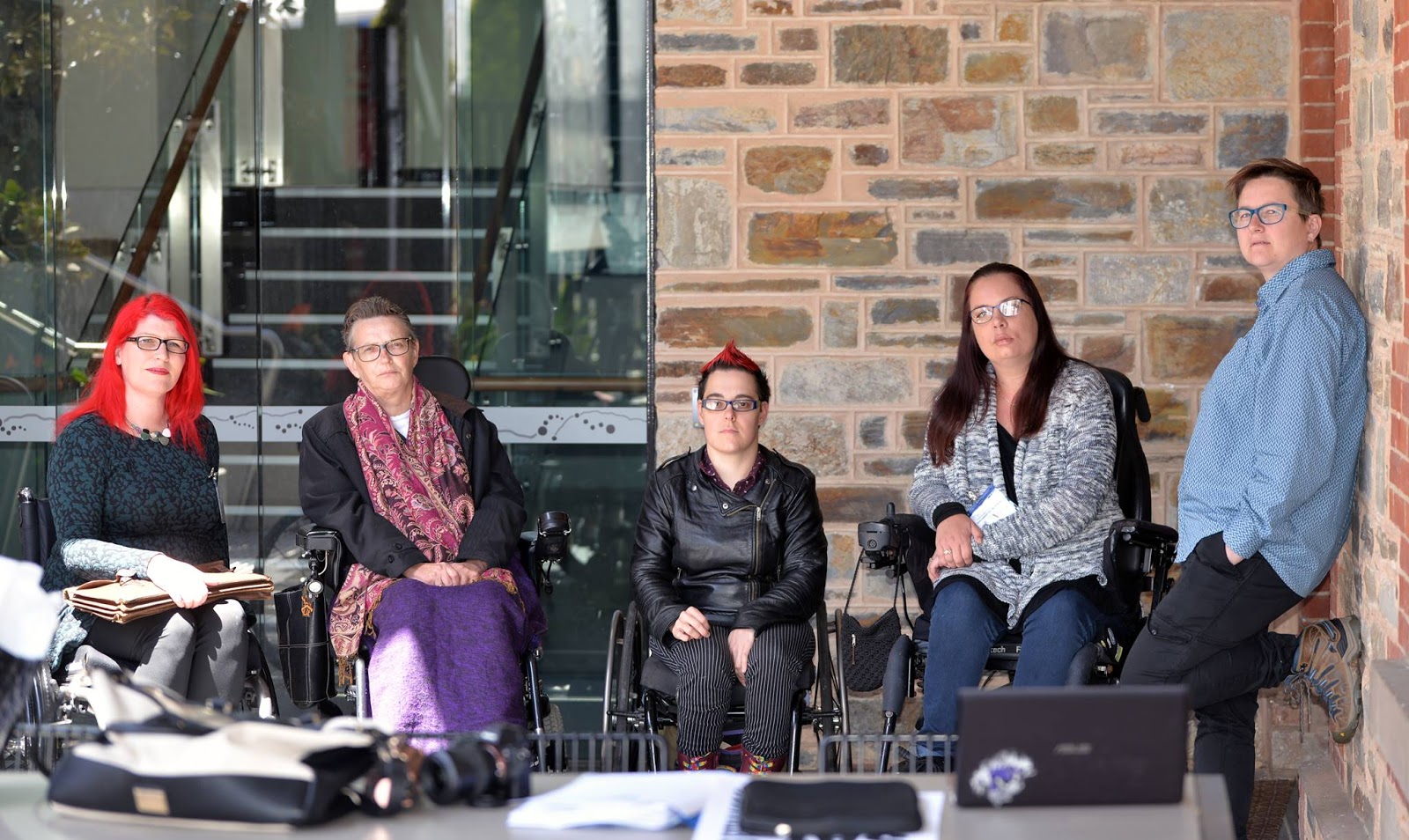Last year, a group of five disability advocates campaigned against the failed euthanasia bill in South Australia – a group of people who described themselves as not being “…anti euthanasia activists – …[but] are disabled women who have flown or travelled to protest the South Australian assisted suicide bill from a disability and human rights perspective”. They told SA parliamentarians that four of them would have been eligible to die under the proposed legislation. Some of the points they made:
- Many people with disability are “…far cheaper to kill than keep alive” and that the state is paying for the care of a productive employee who has quadriplegia (the same people that wanted to introduce euthanasia and assisted suicide to South Australia)
- Another disability advocate, Liz Carr asks the question using “…the example of a person on a bridge, ready to jump. Do you help them jump, or extend your hand to save them? she asks. Would you do a different thing if they were disabled? And if you would, should you not ask yourself why?”
- They “…point out that being given the right to die before being given the supports and right to live a good life is not really a choice”.
In regards to the right to live, disability advocate Jax Jacki Brown states that:
“…they believe we first need the right supports to be able to live our lives fully and equally before the right to die. The argument is that, until society has the capacity to provide all the services which would enable people with disabilities to participate fully and equally in society, then a choice for assisted dying is never truly voluntary.”
Ms Jacki Brown goes on further to explain how people with disability “…warn of the dangers of legal assisted dying existing in a society which devalues the lives of disabled people and tells us that we are better off dead…”. Jess Kapuscinski-Evans, a young woman with a spinal cord injury tells us that “…we are not ‘burdens’ whose best option is to commit suicide.” but reminds us that people with disability need the right supports and to “…feel that our lives are worth living”.
Stella Young, a famous Victorian disability advocate experienced medical professionals who had told her she had a ‘good innings’ and that she was doing “…very well” at the age of 27. Journalist Quentin Kenihan highlights what the implications may be if Stella required resuscitation. For me, this raises concerns that, if euthanasia or assisted suicide laws were to be established, how doctors would treat people with disability and whether they’d influence the decision of whether the patient would live or be groomed into the option of being made dead.
The Possibility of Coercion
This leads me to wonder about the following questions if euthanasia or assisted suicide were to be legalised. Despite the voluntary nature of the proposed laws for Victoria, would people with disability be coerced into ending their lives through euthanasia or assisted suicide due to a society that devalues many of us? Would doctors sweet-talk people with disability into thinking they’ve had a hard life and they may as well end it? Despite claims that the proposed euthanasia or assisted suicide laws will require that one must not be experiencing mental health problems to be eligible to access euthanasia or assisted suicide, I fear that people with disability along with the wider community will choose euthanasia or assisted suicide due to, in many cases, their poorer quality of life and I believe that feelings of depression will influence the decision to end one’s life.
I feel that we need to focus on improving the quality of life for all people including people with disability instead of taking about actively ending their lives.
If this article brings up any issues for you, support and information about suicide prevention is available by calling Lifeline Australia on 13 11 14.
For more information about euthanasia, please visit HOPE: Preventing Euthanasia and Assisted Suicide
- A shorter version of this article appears in the Sandpiper: a newsletter of the Catholic Archdiocese of Sandhurst
